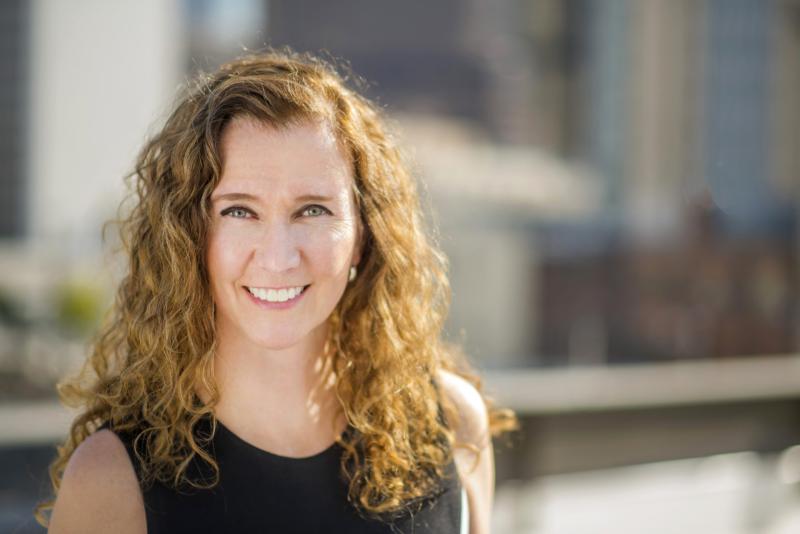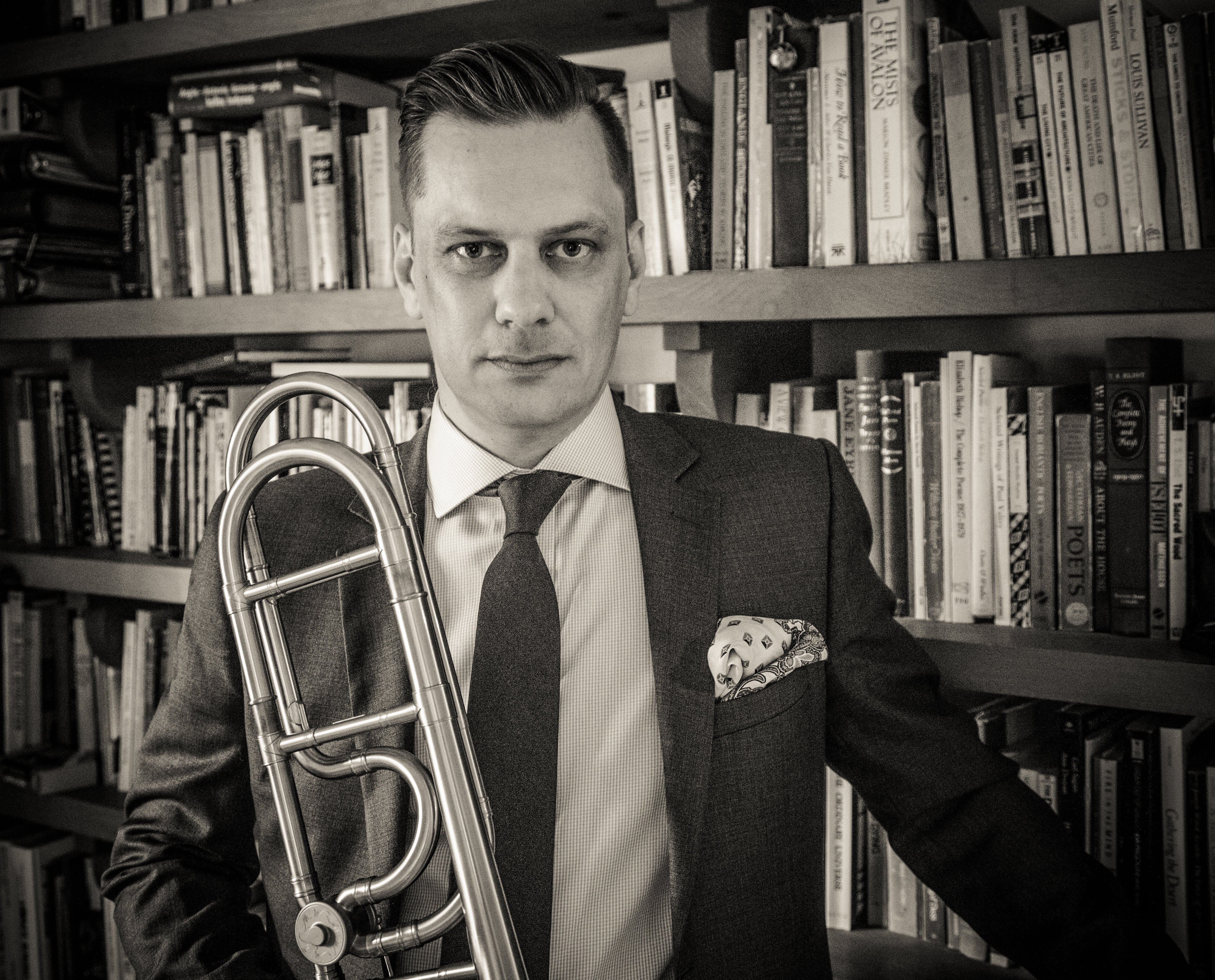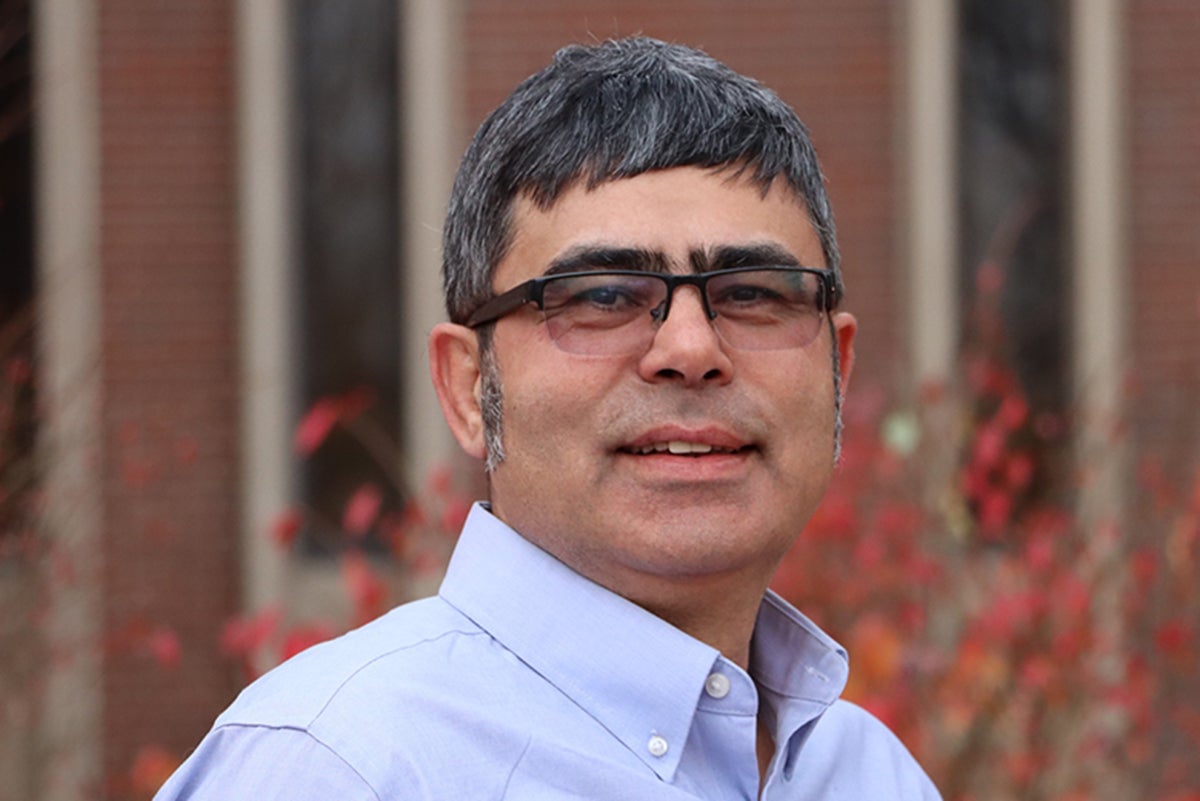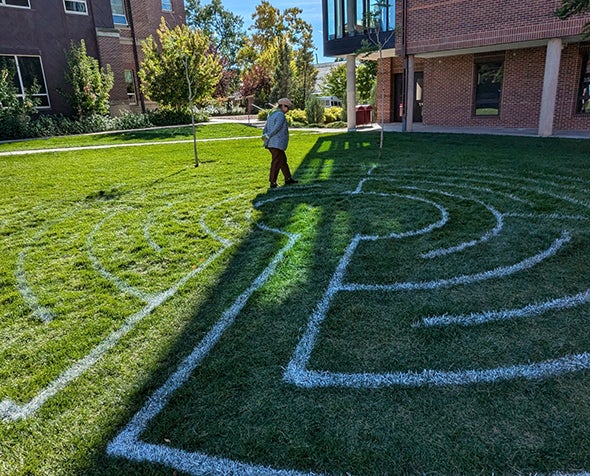Wolzien Lecturer to Champion Local Journalism and Higher Education’s Role in Upholding Democracy, Dispelling Misinformation

Laura Frank cannot recall a time when she wasn’t interested in journalism but clearly remembers the moment while working as an investigative reporter for a newspaper in Huntington, West Virginia a couple years out of college, when she knew she had found her life’s calling.
“One of my reports ended up freeing half a dozen people who’d been wrongfully imprisoned,” she said. “That I played some part in helping right a wrong like that, well; I was devoted to making a difference from then on.”
Frank has been righting wrongs and making a difference ever since, reporting for newspapers, radio and public television nationwide and as an investigative reporter for the former “Rocky Mountain News.” In that role, her contributions to investigating the health of employees at the Colorado nuclear weapons facility Rocky Flats who believed they’d been exposed to toxic chemicals and radiation led to a new federal program to compensate ill workers.
A longtime leader in fostering collaborative journalism in Colorado, Frank is a founding member of the Institute for Nonprofit News and executive director of the Colorado News Collaborative of more than 180 news outlets commonly known as COLab.
As the “Wolzien Visiting Professor of the Practice,” Frank has been sharing her passion and expertise with College of Arts, Humanities & Social Sciences (CAHSS) students, teaching classes in the Department of Media, Film & Journalism Studies (MFJS) in winter and spring quarters.
She will deliver the 2025 Wolzien Lecture on a topic close to her heart: "Local Journalism, Higher Education & the Future of Democracy” on Thurs., Feb. 13, in Craig Hall, room 120 (2148 S High St.) from 6-7 p.m., preceded by a reception from 5-6 p.m. The event will feature a panel of local journalists and news academics including Colorado Trust for Local News Editor Linda Shapley, Colorado College Journalism Institute Manager Corey Hutchins and University of Colorado Journalism Researcher and Department Chair Patrick Ferrucci, facilitated by Frank.
“We are incredibly lucky, thanks to the generosity of Alumni Tom and Valerie Wolzien, to have Laura working with our students this year,” said Associate Professor Derigan Silver, MFJS Chair.
According to Silver, the topic of journalism and the future of democracy “is central to what we’ve been doing at DU all year. Our discussion with ‘9News’ anchor Kyle Clark and Chancellor Jeremy Haefner, the Estlow Lecture, the Margolin Lecture and now the Wolzien Lecture, have all highlighted the importance of a vibrant and thriving media ecosystem to a healthy democracy. We are proud to be hosting Laura this year and excited to bring so many community members to our campus to hear about these important topics.”
According to Frank, local journalism “offers a window of opportunity for the whole country to overcome this gripping polarization we’re all experiencing.” From her perspective, the power of the press starts from the bottom up.
“National and global journalism have a degree of separation from place that local sources do not and there’s nuance and context that sometimes gets lost in translation from local to national and global.”
She pointed out that local news likewise plays a part in discerning how national and global news impacts people’s daily lives. “We need to understand how constantly changing federal environmental policies, for example, affect us locally,” she said.
In “Media and Culture,” the current class Frank is teaching, “we’re talking about the cultural challenges we’re all facing, why we’re so polarized, how people think differently and what might be the connecting fibers to help people overcome polarization through shared information,” Frank said. “If you believe that local news is critical to democracy and I think the evidence is overwhelming that it is, then we have to figure out how to prevent its deterioration which will leave communities vulnerable to further disinformation and disengagement.”
Already her classes have attracted a wide range of students — about half of whom are journalism majors and half from other disciplines. “We hope to continue to get a cross section of smart students from different disciplines and pair them with newsrooms where they can put into practice some of the things we’re figuring out.”
“I cannot think of a more important problem to solve than this one. I cannot think of anything I would rather spend my working hours trying to figure out, even if it is futile, to reinvigorate our local news organizations, help people disengage from the psychodrama that is our national news and reengage citizens in the issues that directly impact their lives.”
Frank is inspired by the depth of her students’ energy and engagement, as shared in the brief reflections she asks them to contribute following each class, including this one from Elise Emerson, a creative writing major and journalism minor slated to graduate in 2026.
“I cannot think of a more important problem to solve than this one. I cannot think of anything I would rather spend my working hours trying to figure out, even if it is futile, to reinvigorate our local news organizations, help people disengage from the psychodrama that is our national news and reengage citizens in the issues that directly impact their lives.”
Frank’s work with COLab has empowered 180 local news outlets across our state to work together on reporting stories [such as the pandemic] that would be difficult for a single organization to cover alone, she explained. COLab also helps news organizations engage and collaborate with community members, increase their revenue flow, obtain resources and become more sustainable.
Leading up to the 2024 presidential election, for example, “we knew that newsrooms needed help covering such a broad, important topic and shouldn’t be doing it in a vacuum but really understanding what their communities wanted to know,” Frank said.
To that end, COLab created the program “Voter Voices,” partnering with “Colorado Public Radio” and adopting their “Citizen’s Agenda” approach of engaging listeners, which had never been used on this scale before. Seventy newsrooms shared surveys asking people what they thought was most important to cover in the 2024 election and more than 7,000 Coloradans shared their insights to help shape news coverage.
“It was the largest citizen’s agenda project ever in the country and an eye-opening experience for us that will change the way we do journalism in Colorado,” Frank said. “It gives journalists a kind of mandate when they go to interview candidates and can say they’re undeniably asking on behalf of the public.”
The initiative relates directly to the role local journalism plays in a thriving democracy. “Multiple studies have shown that everyone is affected by the free flow of trustworthy information,” Frank said. “More people vote, run for office, participate civically. When you don’t have that, there’s more polarization, corruption, government inefficiency. There’s a reason why the press is the only industry specifically protected in the U.S. Constitution.”
Register for Laura Frank’s Feb. 13 Wolzien Lecture, endowed by CAHSS Alumni Tom and Valerie Wolzien, here.





